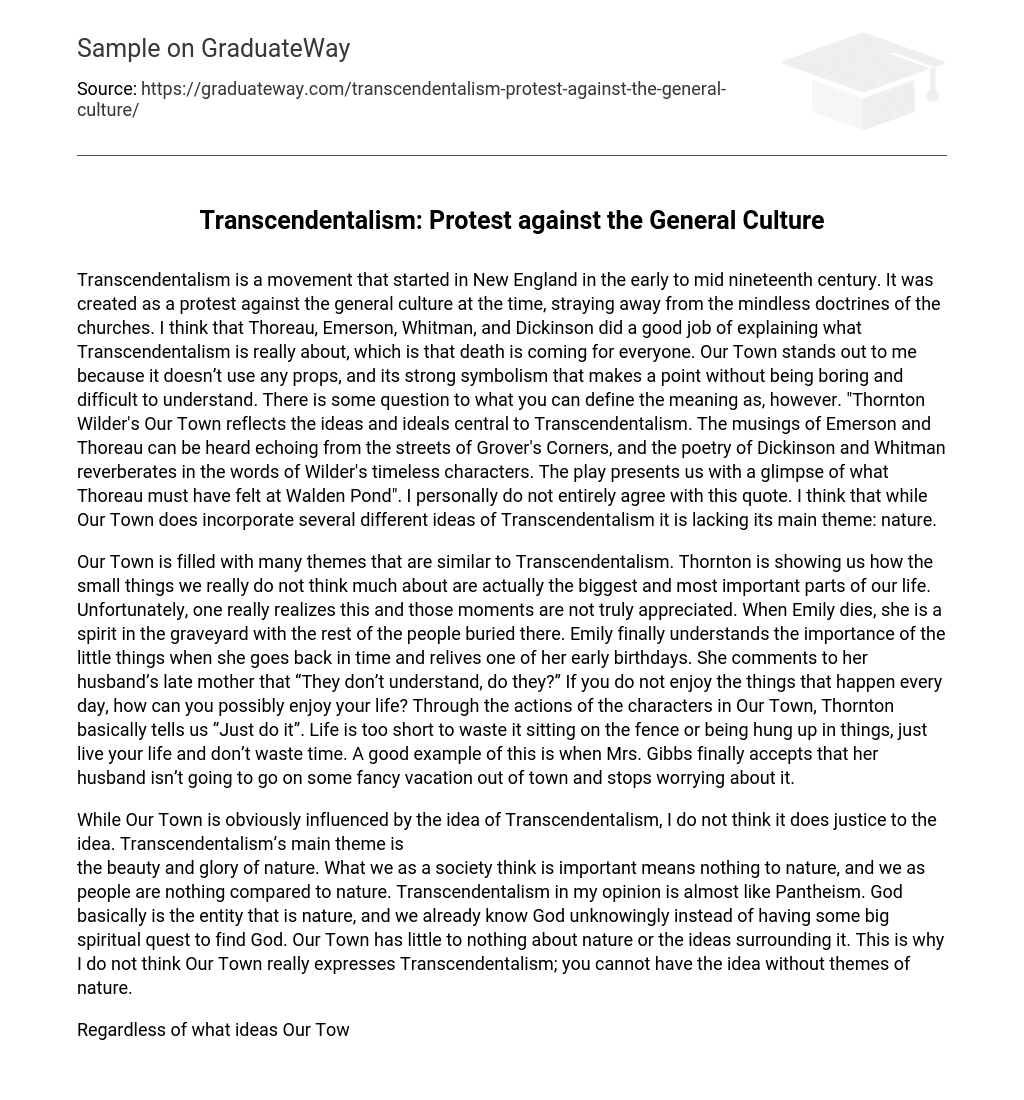In the early to mid-nineteenth century in New England, Transcendentalism emerged as a rebellion against prevailing culture and religious doctrines. Thoreau, Emerson, Whitman, and Dickinson effectively conveyed Transcendentalism’s essence by emphasizing death’s inevitability. Our Town sets itself apart with its unique approach of excluding props but using symbolism effectively to convey a clear and accessible message. However, there is debate on how to define this play’s meaning. According to one interpretation, “Thornton Wilder’s Our Town reflects the ideas and ideals central to Transcendentalism. The musings of Emerson and Thoreau can be heard echoing from the streets of Grover’s Corners, and the poetry of Dickinson and Whitman reverberates in the words of Wilder’s timeless characters. The play presents us with a glimpse into what Thoreau must have felt at Walden Pond.” Personally, I don’t fully agree because although Our Town incorporates various Transcendentalist concepts it lacks an essential element: nature.
Our Town explores themes similar to Transcendentalism, emphasizing the significance of seemingly insignificant aspects of life. Thornton depicts how individuals often fail to appreciate these moments. Upon her death, Emily becomes a spirit among the other buried souls in the graveyard, where she gains a newfound understanding of the importance of small things by reliving one of her earlier birthdays. Expressing this revelation to her deceased mother-in-law, Emily comments, “They don’t understand, do they?” How can one fully enjoy life if they do not appreciate everyday occurrences? Through the characters’ actions, Thornton encourages us to seize the moment and not waste time. Mrs. Gibbs serves as an exemplary figure: she eventually relinquishes her concerns about her husband’s unwillingness to embark on an extravagant out-of-town vacation and chooses to live her life without reservations.
Even though influenced by Transcendentalism, Our Town fails to truly capture its essence. Transcendentalism emphasizes the beauty and splendor of nature, highlighting the insignificance of societal values and our own existence compared to the grandeur of nature. In my view, Transcendentalism is akin to Pantheism, where God is essentially nature itself, and our connection to God is already ingrained in us. However, Our Town lacks sufficient exploration of nature and its related concepts. Thus, I believe that Our Town does not effectively convey Transcendentalism as it lacks the crucial element of nature.
Regardless of the ideas that Our Town is attempting to convey, it remains a highly successful and enjoyable play that effectively represents American literature. Although I found it enjoyable to watch, I cannot confidently label it as a prime example of Transcendentalism. The significance of nature is too prominent to be disregarded, and one could argue that focusing on society and the artificiality of towns directly contradicts the principles established by Transcendentalist authors.





